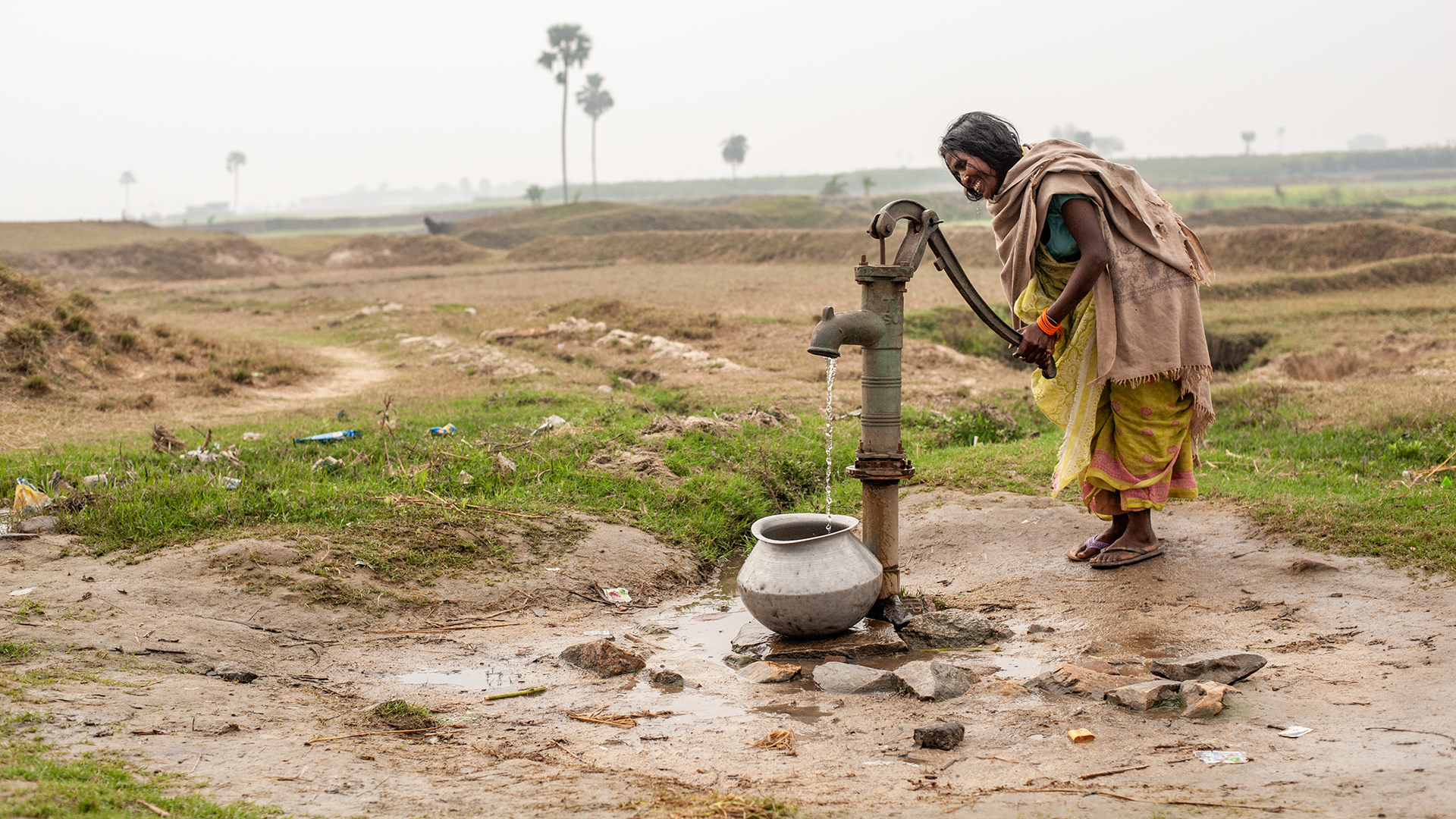Two thousand years ago, in a dusty desert town in Samaria, Jesus met a woman at the well in desperate need of the good news of His love and grace. She went into town and told everyone she saw, “Come, see a man who told me all that I ever did. Can this be the Christ?” (John 4:29).
Two thousand years later, a South Asian woman carried her water pitcher to the village well. She couldn’t read or write, but in her free hand, she held those same words of life that Jesus shared tucked away in an Ek Rasta SD card in her phone. Six other women gathered around her at the well. In her society’s caste system, they would be considered outcasts — poor, rural and uneducated.

That day at the well, though, the six women listened to Bible stories, and learned they were precious in the eyes of God. Though none professed faith, they listened attentively. International Mission Board missionaries Brooks and Julia West are thankful for the boldness of their believing friend who shared God’s Word. They ask you to pray for the Word of God to take root in the women’s hearts.
The lady, though already a believer, had grown in her faith and understanding of the gospel by listening to Bible stories on the same SD cards. Her people are often viewed as an animistic, remote, tribal people. While many now practice Hinduism, historically, their animistic beliefs made them unlike the majority of her countrymen that are predominantly Hindu. The Wests have been living among them since 2019, and their heart is to bring hope to these people in an area forgotten by the rest of their society.
The Wests found these cards are a wonderful tool to share the gospel and help existing believers grow, especially among those who are illiterate — almost 50% in this tribal region.
The SD cards, translated “The Way,” are series of audio lessons from the Scriptures in the local language. There are around 90 lessons recorded, each lasting eight to 12 minutes. This gospel presentation is 35 lessons that walk a listener through the Bible from creation to the new creation mentioned in Revelation.
The Wests’ goal is to equip and empower the local church to take the Ek Rasta cards and share them with the people around them — in the fields where they work, the marketplaces they visit and even the wells where they draw water.
They gather groups of around 20 believers and participants will listen intently through a set of the Bible stories. After each story, the missionaries ask questions to get the believers to dig deep into the meaning and message of the story: What was the most surprising thing about this story? What did you like about this story? What do we learn from this story?
One group, tasked with sharing the stories with people around them, reported they’d shared with over 170 individuals in four weeks. Then the group came back hungry for more training.
“You know, it’s something really special when a believer who is uneducated and cannot read or write begins to understand that they don’t have to be able to read and write or have a degree in theology in order for God to work in powerful ways through them,” Brooks shared. “When that sinks down into their hearts, it just lights a fire in them, and they become seed sowers like you wouldn’t believe.”
Julia agreed and said it’s not that the cards are special, but the gospel is going forward because of the “people in whom the Spirit of God is working to embolden them and use them for His glory.”
The missionaries are excited to see the Ek Rasta cards go into even harder to reach remote villages, bringing hope to those society has forgotten. Join them in bringing hope to remote villages and explore Ek Rasta: https://southasiansands.wixsite.com/ekrasta
Some names may have been changed for security purposes.
The work of the IMB is made possible through generous giving to the Cooperative Program and Lottie Moon Christmas Offering®.
The Lottie Moon Christmas Offering® is a registered trademark of Woman’s Missionary Union.

